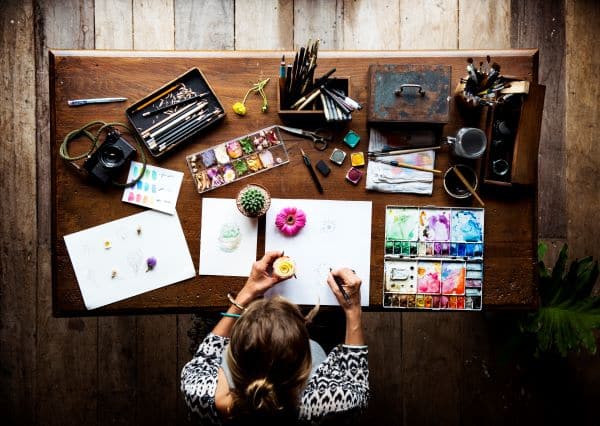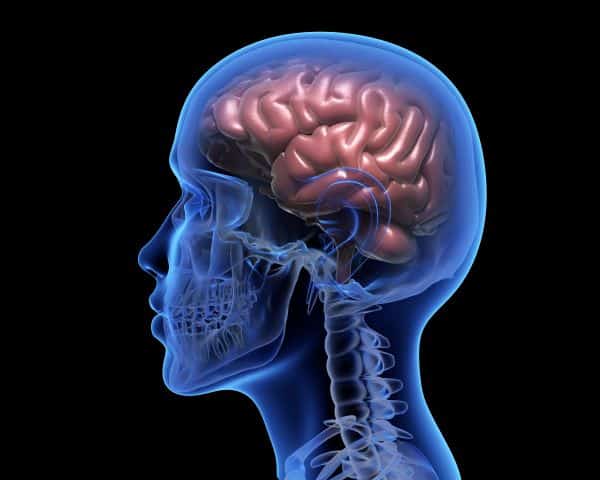Creativity, a multifaceted and dynamic concept, permeates various aspects of life, offering an array of benefits. This blog post delves into the significant impact of creativity on mental health and wellness. It seeks to unravel how creative expressions, whether in art, music, literature, or everyday problem-solving, contribute to emotional well-being, cognitive development, and the overall psychological state. The exploration here is not just academic; it is a journey through the therapeutic potential of creativity, highlighting its importance as a tool for emotional expression, mental resilience, and the destigmatization of mental health issues.
Contents
Understanding Creativity

Creativity is often perceived as the domain of artists and musicians, yet it extends far beyond these bounds. It encompasses the ability to generate new ideas, solutions, and forms of expression that are original and valuable in a particular context. Whether it’s painting a mural, devising a new business strategy, or crafting a poem, creativity involves a complex interplay of cognitive processes, emotions, and personal experiences. It’s not confined to the outcome but is deeply rooted in the process of creation, which stimulates the mind and soul.
Creativity’s definition is as diverse as its expressions. Psychologists view it as a mental process involving the generation of new ideas or concepts, or new associations between existing ideas or concepts. From a more artistic perspective, creativity is about expressing oneself in a way that is unique and authentic. This diversity in understanding underscores the universal nature of creativity – it’s a phenomenon that transcends disciplines, cultures, and individual backgrounds, making it a ubiquitous aspect of human experience.
Creativity As A Therapeutic Tool

The use of creativity as a therapeutic tool has gained recognition in various psychological practices. Art therapy, for instance, leverages the process of art-making to improve mental health and emotional well-being. This form of therapy helps individuals express unspoken and often unconscious concerns, thereby facilitating a deeper understanding of their emotional states. It has been effective in treating a range of mental health issues, from depression to trauma, offering a non-verbal outlet for expression.
Similarly, music therapy has shown remarkable benefits in mental health care. It utilizes music to address physical, emotional, cognitive, and social needs of individuals. Through creating, singing, moving to, and/or listening to music, individuals undergoing music therapy can improve their ability to communicate and express emotions, manage stress, and enhance memory. This approach demonstrates the power of creativity in reaching areas of the psyche that are often untapped by traditional therapy methods.
Creativity And Emotional Expression

Creativity provides a powerful means for expressing complex and deep-seated emotions. When words fall short, creative activities like painting, writing, or composing music can offer an alternative avenue for conveying feelings. This form of expression can be particularly therapeutic, as it allows individuals to externalize emotions that might otherwise remain internalized and unprocessed. By engaging in creative endeavors, people often find a safe space to explore and make sense of their emotional experiences.
The role of creativity in understanding and processing emotions is evident across various art forms. Literature, for instance, allows both writers and readers to explore the human condition, offering insights into a spectrum of emotional experiences. Similarly, visual arts provide a canvas for the expression of personal narratives, often encapsulating complex emotions that might be challenging to articulate verbally. These creative expressions not only facilitate emotional catharsis for the creator but also foster empathy and understanding among audiences, bridging gaps in human experiences.
Creativity’s Impact On Brain Health

Engaging in creative activities has been shown to contribute significantly to cognitive function and brain health. Activities like painting, writing, and playing music not only stimulate the brain but also enhance neuroplasticity – the brain’s ability to reorganize itself by forming new neural connections. This process is crucial for learning and memory, and it can be particularly beneficial as one ages. Moreover, creative pursuits often involve problem-solving and critical thinking, which are essential for keeping the mind sharp and resilient.
Studies have demonstrated a link between creative activities and improved mental agility. For example, musicians often exhibit enhanced auditory, visual, and motor coordination skills, indicating a direct impact of their creative practice on brain function. Similarly, engaging in the visual arts has been associated with improved psychological resilience and a reduction in stress-related hormones. These findings underscore the importance of creativity in maintaining not just mental health but also cognitive vitality.
Overcoming Mental Health Stigmas Through Creativity

Creative expression plays a crucial role in challenging and reducing the stigma associated with mental health issues. By sharing personal experiences through art, literature, and music, individuals can foster greater understanding and empathy towards mental health challenges. This not only helps in deconstructing myths and stereotypes but also encourages open conversations about mental health, which is a vital step in destigmatization.
There are numerous instances where creativity has been harnessed to spread awareness about mental health. From public art installations to theater productions, these initiatives have provided platforms for dialogue, education, and connection. By bringing mental health issues into the public eye through creative means, a more supportive and understanding community can be fostered, where seeking help and discussing mental health is not shrouded in shame but embraced as a part of the human experience.
Challenges And Limitations

While creativity offers numerous benefits for mental health, it’s important to acknowledge its limitations and challenges. Not everyone may have equal access to creative outlets, and the effectiveness of creative therapies can vary widely among individuals. It’s also crucial to remember that while creativity can be a powerful tool in managing mental health, it is not a substitute for professional medical treatment in cases of severe mental health disorders.
Moreover, the pressure to be ‘creative’ can sometimes lead to additional stress, particularly in a society that often values productivity and measurable outcomes. Therefore, it’s essential to approach creativity with a sense of openness and play, rather than as a means to an end. Emphasizing the process over the product allows for a more authentic and stress-free engagement with creativity.
Fostering Creativity For Mental Well-being

Incorporating creativity into daily life can be a simple yet effective way to enhance mental well-being. This doesn’t necessarily require grand artistic talents; rather, it’s about finding small, everyday ways to express oneself creatively. This could be through journaling, doodling, DIY projects, or even creative problem-solving at work or in personal life. The key is to find joy and fulfillment in these activities without the pressure of perfection or external validation.
Creating a supportive environment is also crucial in nurturing creativity. This involves not only physical spaces that inspire creativity but also a social environment that encourages and values creative expression. Whether it’s through participating in community art projects, joining a writing group, or simply sharing creative endeavors with friends and family, building a community around creative activities can be immensely beneficial for mental health.
The Bottom Line
The exploration of creativity’s role in mental health reveals a multifaceted relationship. From enhancing brain health and cognitive function to providing a medium for emotional expression and combating mental health stigmas, creativity emerges as a significant ally in the pursuit of mental wellness. While acknowledging its limitations and the need for professional intervention in certain cases, the potential of creativity in enriching mental health cannot be overlooked. This journey underscores the idea that engaging in creative activities, in any form, can be a powerful tool for nurturing mental well-being, fostering resilience, and opening new pathways to understanding and managing mental health.